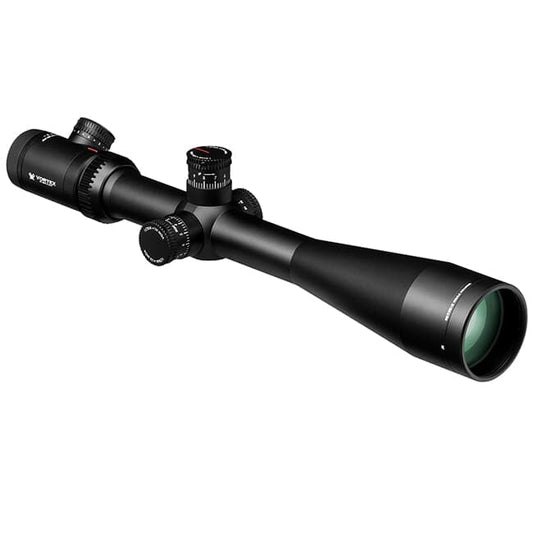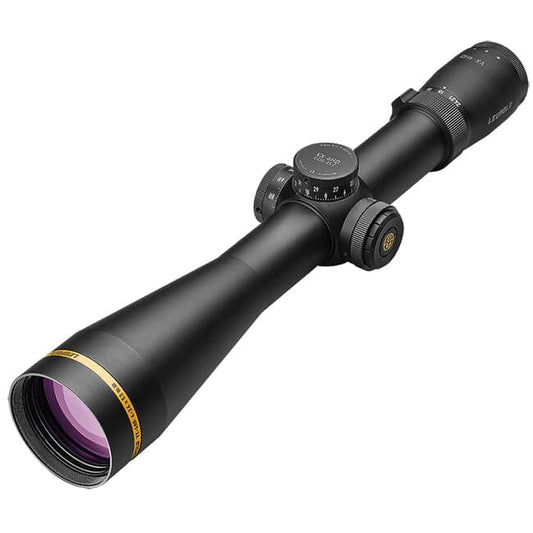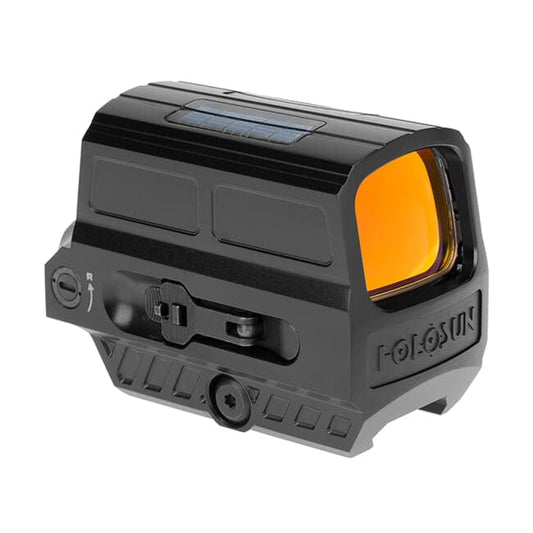12 Firearm Safety Rules Every Gun Owner & Hunter Should Know
Ready to elevate your gun safety game? Whether you're a seasoned hunter or a first-time firearm owner, these 12 essential safety rules could save lives. Imagine confidently handling your firearm, knowing you've mastered the principles that keep you and others safe. Intrigued?
These rules start with the basics: treat every gun as loaded, always point the muzzle in a safe direction, and keep your finger off the trigger until ready to fire. They extend to crucial practices like proper ammunition use, secure storage, and wearing protective gear. As Jeff Cooper, the father of modern handgun technique, often said, "Safety is something that happens between your ears, not something you hold in your hands."
But what about the less obvious rules? Did you know how you cross obstacles or consume alcohol can dramatically impact firearm safety? We'll explore these and more. Stick around as we break down each rule, providing you with the knowledge to become a responsible, safety-conscious gun owner and hunter. Ready to dive in?
1. Treat Every Firearm as if It's Loaded
You've heard it before, but it bears repeating: always assume a gun is loaded. This golden rule is the foundation of firearm safety. It's a mindset that could save your life or someone else's.
Why is this rule so crucial? Because assumptions can be deadly. Even if you're certain you unloaded your gun, treat it with the same respect and caution as a loaded firearm.
This practice builds good habits. It ensures you're always mindful of where your gun is pointing and how you're handling it. Remember, it only takes one mistake with an "unloaded" gun to change lives forever.
Treating every gun as loaded means:
- Never pointing it at anything you don't intend to shoot
- Always keeping the safety on until you're ready to fire
- Handling every firearm with care and respect
By internalizing this rule, you're setting yourself up for a lifetime of safe hunting experiences. It's not just about following rules - it's about cultivating a safety-first mentality that becomes second nature.
2. Always Point the Muzzle in a Safe Direction
Muzzle control is your first line of defense against accidents. But what exactly constitutes a "safe direction"? It's any direction where, if the gun were to discharge, it wouldn't cause injury or damage.
This rule applies everywhere - in the field, at home, or at the range. It's not just about when you're actively hunting. Even when cleaning or transporting your firearm, muzzle control should be top of mind.
Think of your gun's muzzle as a laser pointer. Where would that laser be pointing if it were always on? Over your hunting partner's head? At your feet? Towards the neighbor's house? Always be aware.
Key points to remember:
- The safest direction is usually towards the ground
- Be mindful of ricochet potential on hard surfaces
- In a vehicle, point the muzzle up or down, never at other passengers
Mastering muzzle control takes practice and constant vigilance. But with time, it becomes an instinct that could prevent a tragedy.
3. Keep Your Finger Off the Trigger Until Ready to Shoot
Your trigger finger is your last line of defense against an accidental discharge. Until you're ready to fire, keep that finger outside the trigger guard. This simple action can prevent countless accidents.
It's easy to get complacent, especially if you've been hunting for years. But all it takes is one slip, one moment of inattention, for disaster to strike. Your finger should only touch the trigger when you've made the conscious decision to fire.
This rule applies even when you're sure the safety is on. Mechanical safeties can fail, but proper trigger discipline never does. Make it a habit to rest your trigger finger along the side of the gun until you're ready to shoot.
Remember these points:
- Keep your finger straight and alongside the frame
- Only place your finger on the trigger when you've decided to fire
- Practice this habit with unloaded firearms to build muscle memory
By mastering this rule, you add an extra layer of safety to your hunting practices. It's a small action that can make a big difference.
4. Be Sure of Your Target and What's Beyond
In the heat of the hunt, it's easy to get caught up in the excitement. But before you pull that trigger, pause. Are you absolutely certain of what you're aiming at? And just as importantly, do you know what's behind your target?
This rule isn't just about accuracy - it's about responsibility. A bullet that misses or passes through a target can travel a long way. You need to be sure it won't endanger anyone or anything else.
Consider the terrain. Is there a hill behind your target that could stop a stray bullet? Or is it flat land where a bullet could travel for miles? What about other hunters in the area?
Essential considerations include:
- Positively identifying your target before shooting
- Being aware of other hunters or hikers in the area
- Knowing the effective range of your firearm and ammunition
Remember, once you pull that trigger, you can't take the shot back. Make sure you're 100% certain before you fire.
5. Use Proper Ammunition
Using the correct ammunition for your firearm is crucial for both safety and performance. Each gun is designed to handle specific types and calibers of ammunition. Using the wrong ammo can lead to malfunctions, damage to your firearm, or even serious injury.
Always double-check that you're using the right ammunition before loading your gun. This means verifying both the caliber and the load. For example, don't use high-pressure loads in a gun not rated for them, even if the caliber matches.
It's also important to inspect your ammunition. Damaged or corroded rounds should never be used. They can cause misfires or other dangerous malfunctions.
Key points to remember:
- Always verify the correct caliber for your firearm
- Check ammunition for signs of damage or corrosion
- Never use handloaded ammunition unless you're absolutely certain of its specifications
By using the proper ammunition, you're not just ensuring better performance - you're prioritizing safety with every shot.
6. Keep the Barrel and Action Clear of Obstructions
A clean, clear barrel is essential for safe shooting. Any obstruction in the barrel can cause the gun to malfunction, potentially leading to injury. This rule requires vigilance both before and during your hunting trip.
Before heading out, always inspect your firearm thoroughly. Look down the barrel from the chamber end (after ensuring the gun is unloaded) to check for any blockages. In the field, be mindful of potential obstructions like mud, snow, or vegetation.
If you fall or your gun gets dirty, take a moment to check it before continuing. A quick inspection can prevent a dangerous situation.
Remember these points:
- Regularly clean and maintain your firearms
- Check for obstructions before each use
- Be extra cautious in muddy or snowy conditions
By keeping your barrel and action clear, you're ensuring your firearm functions as intended, keeping you and those around you safe.
7. Unload Firearms When Not in Use
A loaded firearm is a liability when it's not actively being used for hunting. Unloading your gun when you're done shooting or moving to a new location is a crucial safety practice. It eliminates the risk of accidental discharge during transport or storage.
But unloading isn't just about removing the magazine. You need to clear the chamber too. Many accidents have occurred with guns that were thought to be unloaded, but had a round in the chamber.
This rule extends beyond the hunting grounds. At home, an unloaded gun is a safer gun, especially if you have children or visitors who might come across it.
Key practices include:
- Double-checking that both the magazine and chamber are empty
- Keeping the action open when the gun is not in use
- Storing ammunition separately from firearms
By consistently unloading your firearm when it's not in use, you're taking a proactive step towards preventing accidents. It's a small effort that can yield big safety dividends.
8. Store Firearms Securely
Proper storage is a vital aspect of firearm safety that extends beyond the hunting field. When you're not using your firearms, they should be stored in a secure, locked location. This prevents unauthorized access and potential misuse.
Secure storage is especially crucial if you have children in your home or if children visit. Curious minds and hands can lead to tragic accidents if firearms aren't properly secured. A gun safe or lock box is an investment in safety that every gun owner should make.
Remember, proper storage isn't just about preventing accidents. It's also about preventing theft. Stolen firearms often end up in the wrong hands, contributing to crime and violence.
Important storage guidelines include:
- Using a quality gun safe or lockbox
- Storing ammunition separately from firearms
- Ensuring keys or combinations are kept secure and private
By following these storage practices, you're not just protecting your household - you're being a responsible member of the wider community.
9. Be Prepared for the Unexpected
Hunting often takes place in remote areas, far from immediate help. That's why it's crucial to be prepared for any situation. This rule isn't just about firearm safety - it's about overall safety in the field.
Always let someone know where you're going and when you plan to return. Carry a first aid kit and know how to use it. Consider taking a wilderness first aid course to be better prepared for emergencies.
In terms of firearm safety, being prepared means knowing how to handle malfunctions safely. It also means being ready to make ethical decisions in the heat of the moment.
Essential preparations include:
- Carrying a well-stocked first aid kit
- Learning basic wilderness survival skills
- Knowing how to safely clear common firearm malfunctions
By being prepared for the unexpected, you're ensuring that you can handle whatever challenges come your way during your hunt.
10. Never Climb or Cross Obstacles with a Loaded Firearm
Navigating terrain while hunting can be tricky. Whether it's scaling a fence, climbing a tree stand, or crossing a stream, these moments demand extra caution. Always unload your firearm before attempting any challenging maneuvers.
Why is this so important? Your focus will be divided between the obstacle and your gun. That split attention increases the risk of accidents. A slip or fall could lead to an unintentional discharge if your firearm is loaded.
This rule also applies when you're helping a fellow hunter cross an obstacle. Safety should always come before convenience or speed.
Remember these key points:- Unload your firearm before climbing or crossing obstacles
- Pass the unloaded firearm to a partner before crossing, if possible
- Reload only when you're in a stable, safe position
By following this rule, you're eliminating a significant risk factor in hunting accidents. It's a small delay that could prevent a major tragedy.
11. Avoid Alcohol and Drugs When Handling Firearms
This rule might seem obvious, but it's crucial enough to state explicitly. Alcohol, drugs, and firearms are a deadly mix. Even small amounts can impair your judgment, slow your reflexes, and increase the risk of accidents.
Hunting often involves early mornings or long days in the field. It might be tempting to have a drink to warm up or relax. But remember, alcohol and drugs don't mix with firearms at any time.
This rule extends beyond obvious intoxicants. Some prescription medications can also affect your ability to handle firearms safely. Always check with your doctor about potential side effects.
Key points to remember:
- Never consume alcohol before or during hunting
- Be aware of how medications might affect your alertness and coordination
- If you're taking medication, consult your doctor about firearm safety
By staying sober while handling firearms, you're maintaining the clear head and quick reflexes needed for safe hunting.
12. Wear Appropriate Protective Gear
Last but not least, always wear appropriate protective gear when hunting or shooting. This includes both eye and ear protection. The loud report of a firearm can cause permanent hearing damage, while debris or ricochets can injure your eyes.
Don't underestimate the importance of this gear. Even if you're just planning a quick hunting trip or a short session at the range, always bring and use your protective equipment.
Remember, your senses are crucial for safe and successful hunting. Protecting them isn't just about comfort - it's about preserving your ability to hunt safely for years to come.
Essential protective gear includes:
- Quality earplugs or earmuffs rated for firearm use
- Impact-resistant shooting glasses
- Bright orange clothing for visibility (when required by local regulations)
By wearing the right gear, you're not just following best practices - you're investing in your long-term health and hunting future.
Conclusion: Safety First, Always
These firearm safety rules are more than just guidelines - they're a mindset. By internalizing and consistently practicing these rules, you're not just protecting yourself. You're safeguarding your hunting partners, other outdoor enthusiasts, and the future of hunting itself.
Remember, responsible gun handling is what separates skilled hunters from amateurs. It's not just about following rules - it's about cultivating a culture of safety and respect for firearms.
So, the next time you head out for a hunt, take a moment to review these rules. Make them second nature. Because in the end, the most successful hunt is always a safe one.
Are you ready to make these safety practices a part of your hunting routine? What steps will you take to ensure you're always hunting safely and responsibly? The choice is yours - and it's a choice that could save lives.





